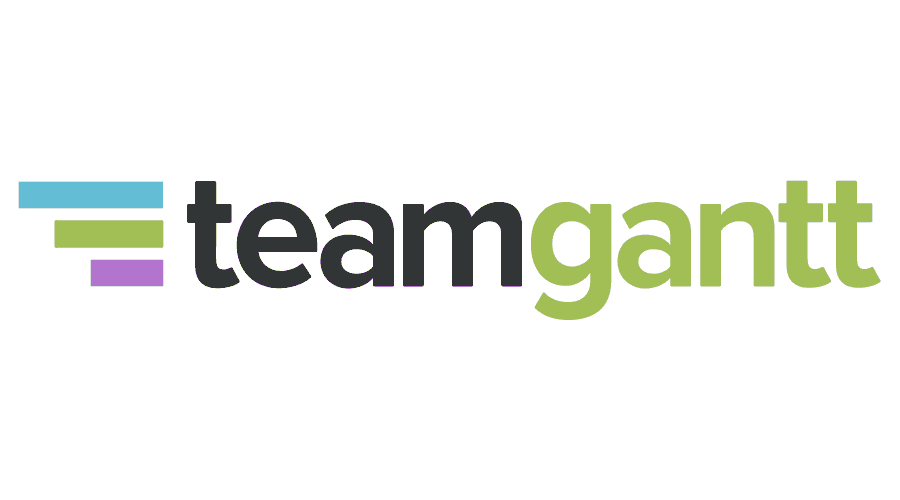In the quest for sustainability and purpose within the startup ecosystem, we’ve gathered insights from a variety of leaders, including Chief Technology Officers and CEOs. From implementing recycling and community engagement initiatives to investing in young talent for longevity, explore the twelve distinct strategies these experts employ to ensure their startups thrive with intention and responsibility.
- Implement Recycling and Community Engagement
- Embrace Remote Operations for Sustainability
- Promote Inclusivity with Ethical Technology
- Echo Your Customers’ Struggles
- Practice Weekly Check-ins
- Choose a Green Bank for Impact
- Build Your Own Servers for Value Alignment
- Prioritize Positive Cash Flow Over Growth
- Adopt Eco-Friendly Packaging Initiatives
- Hire for Value Alignment, Not Just Skills
- Publish Transparent Sustainability Progress
- Invest in Young Talent for Longevity
Verizon Digital Ready: Providing Entrepreneurs the Skills and Knowledge They Need
Implement Recycling and Community Engagement
One initiative that was implemented is a recycling and waste-reduction program. I have partnered with local recycling facilities and implemented recycling bins throughout our office space. I’ve also reduced our paper usage by implementing digital documentation and encouraging electronic communication.
One way the team and I put this into practice is by actively supporting local community initiatives. By volunteering our time and resources, we are integrating sustainability into our daily operations and actively engaging with our community. We also ensure that our startup operates in a sustainable and purpose-driven manner, reflecting our core values.
Rubens Basso, Chief Technology Officer, FieldRoutes
Embrace Remote Operations for Sustainability
The simple fact is that our on-the-ground workers are going to produce a lot of carbon. There’s no way we could afford a fleet of electric trucks, or to sustainably source all of our packing materials. We have some long-term goals in that department, but are a long way from making them a reality.
The area where we do try to be as nimble and sustainable as possible is in our back-end operations. We’re a fully remote business, and always have been. Our administrative team is scattered across the country, and we operate with minimal staffing and use simple, accessible software platforms. It helps to keep our overhead low and our growth steady, which will hopefully give us the market share to pursue sustainability more seriously in the future.
Nick Valentino, VP of Market Operations, Bellhop
AI + Data + CRM = more sales and happier customers.
Start or grow your business with the #1 CRM. Salesforce now has AI tools that helps you connect with your customers in a whole new way.
Promote Inclusivity with Ethical Technology
Our startup set out to create good jobs using smart technology. But making a real difference means putting ethics first—every choice should help people from all backgrounds. So when building our company, we designed it to open doors for those struggling to access opportunities, not just to make money. Our algorithms recommend candidates based on skill, not demographic data. We keep staff policies fair across roles and identities, too.
Sure, we could grow quicker by selling user data, but we don’t roll that way. Being purpose-led is what makes pioneering technology sustainable and attracts top talent who share our values. Basically, when doing good guides what you build and how you build it, it flows through to the impact you make. The rest follows. This is the right path.
Lou Reverchuk, Co-Founder and CEO, EchoGlobal
Echo Your Customers’ Struggles
As the co-founder of an impact-driven startup, Bindr, our entire company’s mission is purpose-driven.
We, as founders, find that our own struggles are echoed by our customers. It’s hard to sometimes fight your own battles, but when you’re fighting for millions of other people who are using you and your company as their voice, it helps keep you grounded in what matters.
Brandon Teller, Co-Founder, Bindr
Get a top-rated gantt chart for free, forever.
Discover why companies like Amazon, Netflix, Nike, and Intuit manage their projects with TeamGantt.
Practice Weekly Check-ins
As a small business with finite resources, it’s critical to figure out how to grow and sustain a business without overstretching ourselves. As a solo business owner, I know my most precious resources are my time and energy. And especially as I am also a parent and am neurodivergent, which means my time and energy are also required outside of the business as well.
Some of the most effective sustainability practices I’ve set up for myself include setting up regular meetings with my business bestie to check in on how things are going, what’s feeling stressful or overwhelming, and brainstorming strategies to reduce the strain without dropping the ball. This can be as casual as a chat on WhatsApp reviewing our to-do lists or as formal as a quarterly planning session where we map out our projects, deadlines, and goals.
I also like to practice this on a smaller scale every week on Fridays. As I close out the week’s work and review the tasks still left to be completed, I like to look ahead at the workload to come and weigh that against my available work time and current energy levels, and assess if it’s truly realistic. There’s rarely a deadline that can’t be renegotiated or a task list that can’t be streamlined.
So this intentional check-in at the end of the week ensures that when I do sit down to work the following Monday, I have a clear vision of what needs to get done and what can wait if I can’t manage at any one time.
Michelle Pontvert, Online Business Strategist and Educator, Michelle Pontvert
Most Read: What is the Average Income of a Subway Restaurant Franchise Owner?
Choose a Green Bank for Impact
An area that’s often overlooked when starting a business is who you decide to bank with. Opting for a greener bank from the start will be one of the best sustainability decisions you make.
This is because the impact of finances on climate and nature can be eye-watering. Unless the bank or financial institution has a good, solid ethical investment policy, it’s likely that your money is being leveraged to support the fossil fuel industry, deforestation, factory farming, and other carbon-intensive activities.
Data from “Banking on Climate Chaos” tells us that since 2016, the 60 largest banks in the world have put 50 times more into fossil fuel expansion than the fossil fuel companies themselves. So, for every $1 oil and gas companies invest in fossil fuel expansion, the world’s 60 biggest banks put in $50.
By setting up your business account with a sustainable bank, you’re voting for a greener tomorrow. It’s a simple change but one that can have a huge impact.
Ben Hardman, Founder, Tiny Eco
Build Your Own Servers for Value Alignment
One thing that can pull a startup away from its values is dependency. At Mojeek, we believe deeply in both privacy and sustainability, and if we were not very particular in our selection of tools, then it would be a great deal harder to hold tight to those values. It’s more work, but by building our own servers, we know where they are and what powers them.
By being more deliberate and paying more up front, we know that we have full control over the infrastructure that backs our technology. Shortcuts early on can compromise your values further down the road, and that’s a problem.
Joshua Long, Head of Comms, Mojeek Limited
12 Essential Steps in Choosing and Building a Side Hustle
Prioritize Positive Cash Flow Over Growth
I’ve always placed a heavy emphasis on positive cash flow over growth. Growing too quickly and inflating receivables can begin a death spiral for some companies. I prefer measured growth with a budget that runs entirely on actual cash received instead of owner contributions or financing. This leads to a healthier company and less stress in managing it.
Christopher Olson, Chief Financial Officer, Surfside Services, LLC
Adopt Eco-Friendly Packaging Initiatives
Our primary sustainability initiative revolves around eco-friendly packaging. We meticulously choose recyclable and biodegradable materials. This has minimized our environmental impact. It is a conscious effort to contribute positively to the environment.
We educate customers about the benefits of these packaging choices. The information is available on our website and through marketing materials. This lets us raise awareness and inspire similar eco-conscious practices.
As a small business, this focused approach not only aligns with our values but also fosters a deeper connection with our customer base. This has helped us establish our brand as a sustainable choice in the market.
Sarah Boss, Clinical Director, The Balance Rehab Clinic
Stress-free bookkeeping for busy founders.
Introducing doola Books! The ultimate bookkeeping software made for founders. Say goodbye to the stress of managing your finances and spend more time focusing on what really matters – your core business!
Hire for Value Alignment, Not Just Skills
The best way to run a purpose-driven startup is by hiring people whose values already align with the company’s. If you hire solely based on skills, experience, and budget, you’ll end up with a team of mercenaries who will leave as soon as a better offer comes along.
However, if you hire people who share your company’s values, then it will be natural for them to find purpose in the work, because good outcomes make them feel good, too. In addition, they’ll stay longer, often for less pay, because of that sense of purpose, and your startup will therefore operate more sustainably than one that spends its resources hiring new people to replace the ones they lost.
Dennis Consorte, Digital Marketing and Leadership Consultant for Startups, Snackable Solutions
Publish Transparent Sustainability Progress
If you want to be really sustainable, be as open and transparent about your initiatives as possible. We share everything we do on our website and other channels. For example, we’re on a journey to Net Zero, so we publish annual updates on what steps we’ve taken in the last year to achieve that goal.
We also have a “What We Stand For” page on our site that talks about how we became a B Corp, carbon avoidance and tree-planting initiatives, and allyship and volunteering. We’ve planted a truly staggering 18,000 trees and avoided 270 tonnes of carbon! We’re also working on an Impact Report to go into detail about all of this, so other companies can follow our roadmap for sustainability.
Every month, we share progress internally as well, using a company “scorecard” to show how we’re attaining our financial and other goals. When you’re open in this way, there’s no room to hide. It keeps you honest.
Matthew Stibbe, CEO, Articulate Marketing
Subscribe to The Start, the Newsletter Built for Entrepreneurs
Invest in Young Talent for Longevity
For us, this was what we decided about our hiring practices from very early on in our formation. We were using a modified Ajax model to hire young talent and train them holistically in the business, growing our future leaders from the ground up to make sure they knew the company inside and out and were there when we were still most closely aligned with our founding values.
We know that these tend to become at least slightly diluted over time, as the company grows and more people are brought on to help keep the momentum going, but with this early investment, we feel like we will be able to stay true to our core values for the long term.
Onno Halsema, CEO, Contentoo
Your wiki, docs, & projects. Together.
Notion is the connected workspace where better, faster work happens. Now with AI.










